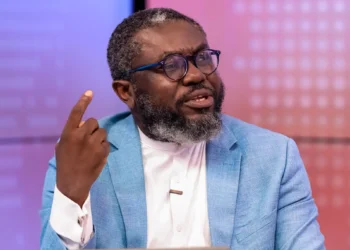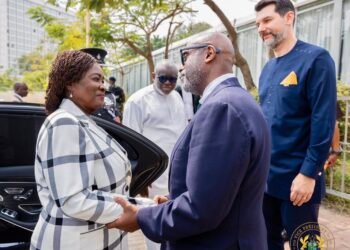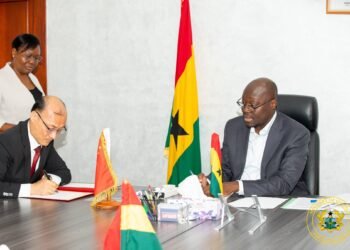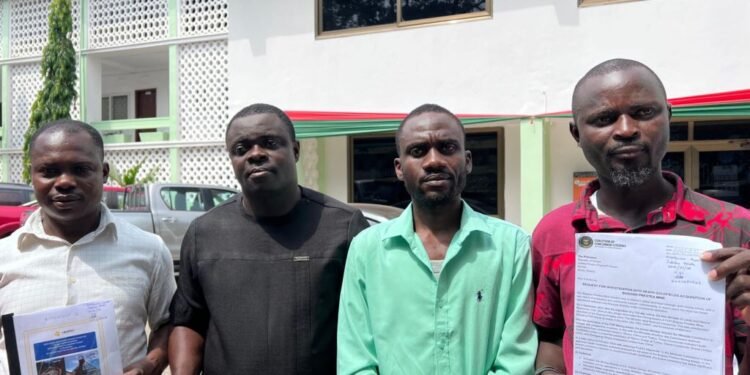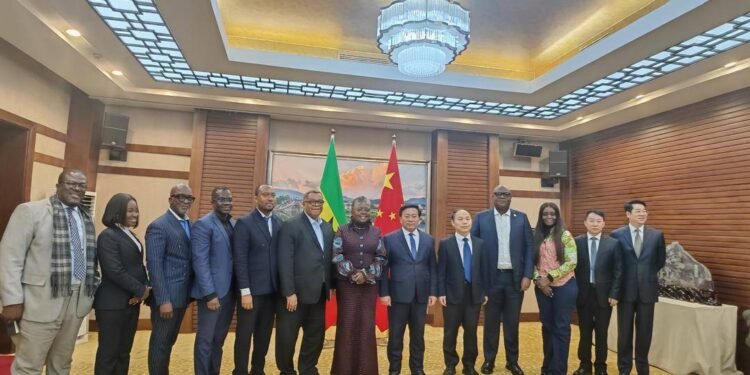Operation Recover All Loots (ORAL) is a citizen-driven initiative to uncover and reclaim misappropriated public funds and resources.
This committee, comprising legal practitioners and activists, has become a focal point in the discourse on transparency and accountability in governance.
Private legal practitioner and a member of the ORAL committee Martin Kpebu Esq. has justified the legal grounds of the committee. He addressed critical questions raised by the Minority regarding the legal foundation of ORAL’s activities.
By defending the legal basis of ORAL, Kpebu emphasized that its activities are rooted in the principles of accountability and the public’s right to question their leaders.
He referenced the Whistleblower Act (Act 720) to underscore the legitimacy of their operations, which allows individuals to report improprieties to various entities. He emphasized;
“In the Whistleblower’s Act, it is stated that if you see any crime or civil wrong, you can choose to go to the police or EOCO. You can go to your Member of Parliament, the Head of your institution, or your Head of family. If you see Mr. X has one million dollars under his or her bed, instead of you going to the police station straight, the Whistleblower Act says you can go and report to the Head of your family. Who can then choose to go with you or go alone.’’
Martin Kpebu Private Legal Practitioner
Kpebu highlighted the importance of public engagement in democratic governance, drawing parallels between modern political discourse and the philosophical ideals of pre-historic Athenian democracy in Plato’s Republic. He emphasized;
“Socrates is reported to have said that an unexamined life is not worth living. In current modern political discourse, it applies to citizens holding leadership to account. So we see it as citizens who are asking questions and so when we answer, it helps the political discourse and our development. We don’t feel threatened at all by the questions they are asking.’’
Martin Kpebu Private Legal Practitioner
Also, he pointed out that during President Kuffour’s regime, he set up an office of accountability similar to ORAL.
To this effect, he stated that ORAL views its role as empowering citizens to hold leaders accountable. He added that the office of the OSP has issued a notice expressing its readiness to work with team ORAL.
Responding to Criticism and Calls for Disbandment
Addressing criticisms from the Minority, who have called for ORAL to be disregarded, Kpebu reiterated;
“We are building a democracy together. It would look very odd that at this stage I would begin to tell people to shut up. It would not help and it would look bad for our democracy. The more they asked questions, the better the outcome because we would be careful. Let the Minority ask questions. It makes our democracy better.”
Martin Kpebu Private Legal Practitioner
Kpebu explained that ORAL operates in phases, with the initial stage focused on gathering evidence and the subsequent stages aimed at working closely with law enforcement agencies to facilitate justice.
He cited the NDC manifesto, which promised structured stages in reclaiming stolen resources, aligning ORAL’s approach with these promises.

Highlighting the inclusivity of the Whistleblower Act, Kpebu pointed out that it encourages individuals to report crimes to various figures in society. he reaffirmed;
“You can go to Asantehene if you’ve seen a minister taking money instead of going to the OSP, you can seek to go and seek audience with Asantehene so that he would take up the case.”
Martin Kpebu Private Legal Practitioner
This broad spectrum of reporting channels underscores the flexibility and supportive initiatives of ORAL’s methodology. Thus this inclusivity legitimizes their work.
Kpebu concluded by reiterating that ORAL’s mission aligns with the broader goals of democratic governance. Through ORAL, Martin Kpebu and his colleagues aim to enhance transparency and accountability in Ghana’s political landscape, asserting that the act of questioning is a cornerstone of a healthy democracy.
READ ALSO; Ghana’s Music Identity Urged To Move Beyond Any Genre




